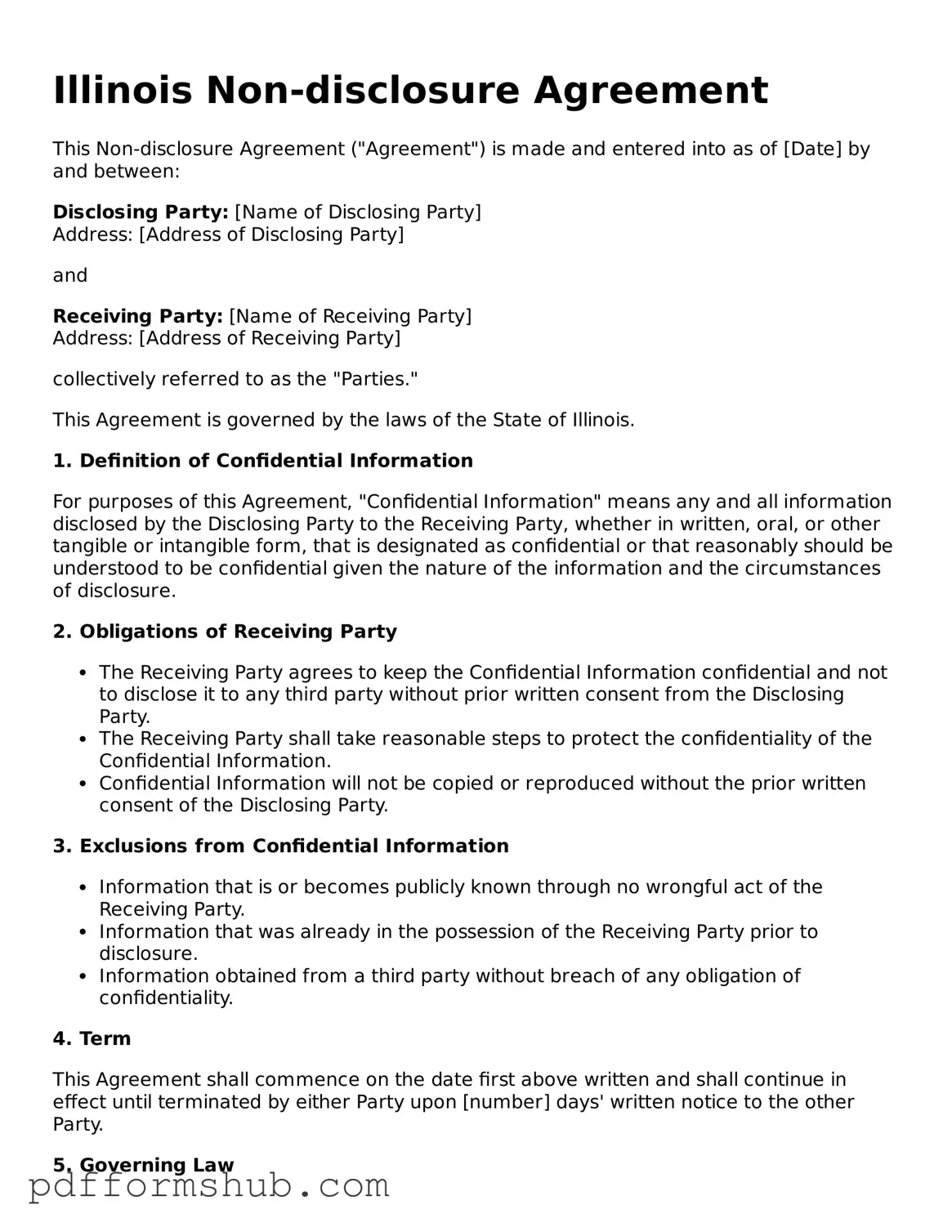Attorney-Verified Non-disclosure Agreement Form for Illinois State
A Non-disclosure Agreement (NDA) is a legal contract designed to protect confidential information shared between parties. In Illinois, this form serves as a crucial tool for businesses and individuals to safeguard sensitive data, ensuring that proprietary information remains secure. Understanding the importance of this agreement can help foster trust and collaboration in various professional relationships.
If you're ready to protect your confidential information, fill out the form by clicking the button below.
Customize Form

Attorney-Verified Non-disclosure Agreement Form for Illinois State
Customize Form

Customize Form
or
Free PDF Form
Short deadline? Complete this form now
Complete Non-disclosure Agreement online without printing hassles.